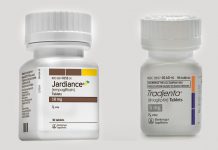A new study, published Tuesday in the Journal of the American Heart Association (AHA), has suggested that reversing prediabetes may lower the risk of stroke, heart attack, and death.
Prediabetes is a condition in which a person has higher than normal blood glucose levels but lower than the threshold for a diabetes diagnosis.
Studies have shown that people with prediabetes are more likely to have a stroke or heart. However, prediabetes can be reversed so one can prevent the risk of life-threatening events.
The current study looked at a group of more than 14,200 coal company employees, most of them men, and checked their blood sugar levels.
From 2006 to 2008, nearly 45% of the participants reverted from prediabetes to normal blood sugar; about 42% stayed the same; 13% progressed to full-blown diabetes.
The study researchers found that those who reversed prediabetes had a 38% lower risk of heart attack and a 28% lower risk of stroke than those who progressed to diabetes. Furthermore, their risk of dying from any cause was 18% lower.
The investigators wrote, “This is the first time that reversing prediabetes has been associated with a substantially lower risk for heart attack and stroke.”
Dr. Robert Eckel, who served in the American Diabetes Association and AHA, said it was good to see the cardiovascular benefits after reversing prediabetes.
However, the study had some inherent limitations, said Dr. Eckel, noting that such studies cannot show causation the way a randomized clinical trial can.
Besides, the blood sugar levels were checked only twice in the study period, which was not the best measure of prediabetes for such a study, according to Dr. Eckel.
However, he said, the study’s take-home message is that “reverting from prediabetes not only keeps you from having diabetes but also affects cardiovascular disease risk as part of that benefit.”
Weight loss is key for people diagnosed with prediabetes, Dr. Eckel said. The U.S. Centers for Disease Control and Prevention (CDC) recommends losing 5% to 7% of the weight and doing regular exercise to lower the risk for type 2 diabetes
Dr. Eckel said, “Ultimately, preventing type 2 diabetes and reverting to normal glucose tolerance is what we’d like to see if you, in fact, have prediabetes.” The article was published last week in Medicine Net.





















